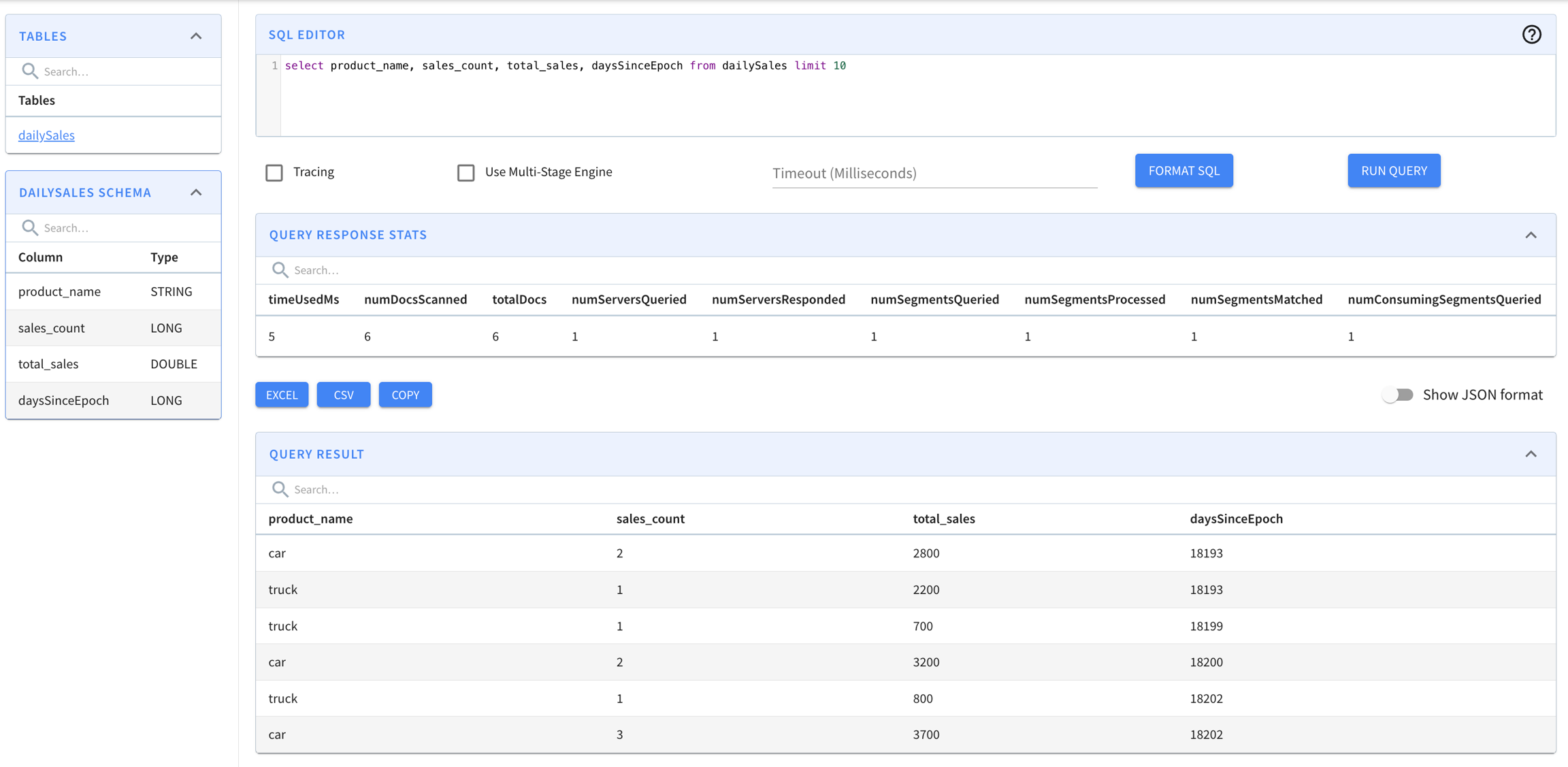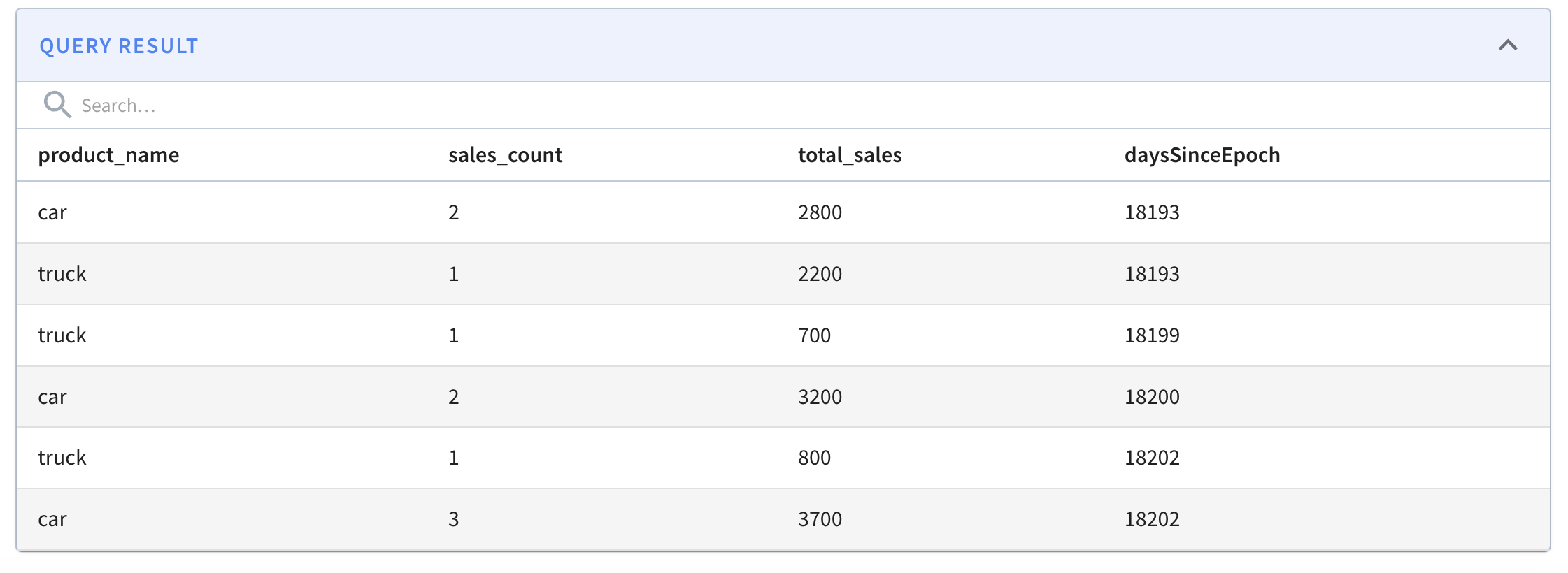Ingestion Aggregations
Aggregation Config
{
"tableConfig": {
"tableName": "...",
"ingestionConfig": {
"aggregationConfigs": [{
"columnName": "aggregatedFieldName",
"aggregationFunction": "<aggregationFunction>(<originalFieldName>)"
}]
}
}
}Requirements
Example Scenario

Example Input Data
Schema
Table Config
Example Final Table

product_name
sales_count
total_sales
daysSinceEpoch
Allowed Aggregation Functions
function name
notes
Frequently Asked Questions
Why not use a Startree?
When to not use ingestion aggregation?
I already use the aggregateMetrics setting?
aggregateMetrics setting?Does this config work for offline data?
Why do all metrics need to be aggregated?
Why no data show up when I enabled AggregationConfigs?
Was this helpful?

